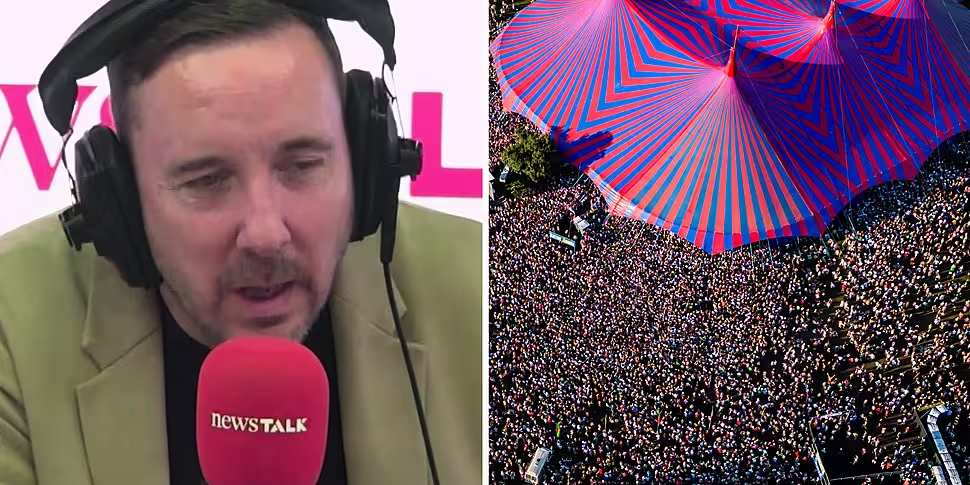Young people singing rebel songs run the risk of romanticising the "horrible and ugly" Troubles, according to Shane Coleman.
Yesterday, The Wolfe Tones performed for the biggest crowd in Electric Picnic’s Electric Arena since the festival started 14 years ago.
Although many of the songs by the rebel music group were written before many attendees were born, the crowd had a wide range of ages – many of whom sang 'Oh, ah, up the Ra' to the band's song 'Celtic Symphony'.
View this post on Instagram
Host Shane Coleman said "kids will be kids" at festivals.
"If I was 22, I'd probably be in the middle, doing exactly the same thing," he said.
Shane said he is concerned by the idea of "rewriting history".
"I think there is now a mythology about the Troubles and the 25 years from 1969 to 1994 that it was a kind of a glorious war," he said.
"I think people who were at that gig yesterday are too young – they weren't even born when it happened, and they're too young to remember that it was horrible and it was ugly."
Violence
Shane said there is a "worrying and dangerous" view that has taken hold that there was "no alternative" to The Troubles and that it was a "great and glorious war".
"It wasn't – it was an ugly, nasty, violent war," he said.
"I want to stress, I'm not having a go at those kids who are singing, but I do worry about rewriting history."
Distance and time
Fellow host Ciara Kelly said a "romanticised notion" of rebels and rebellions was an inevitable part of the aftermath of the Good Friday Agreement.
"The distance and time was always going to do this," she said.
"It has become sort of folk legend or something and there is a romanticised notion of rebels and rebellions.
"I'm not sure that they differentiate between the provisional IRA and the old IRA and all the things that maybe we did because that was where we were from."
War
Ciara said the romanticised idea of The Troubles is reminiscent of her childhood in post-war Ireland.
"I grew up as a small child in the 70s, and everything on TV was about World War Two," she said.
"I thought it was ancient history. It could have been the 1700s for all I realised.
"It had ended 26 years before I was born, so it ended in the equivalent of 1997. That's what it is for kids now."
Ciara said The Good Friday Agreement now seems like "ancient history" for young people.
"It's a generation ago and they're never going to view it the same as people who lived through it and who saw it and who experienced it, and I guess nothing's going to change that," she said.









